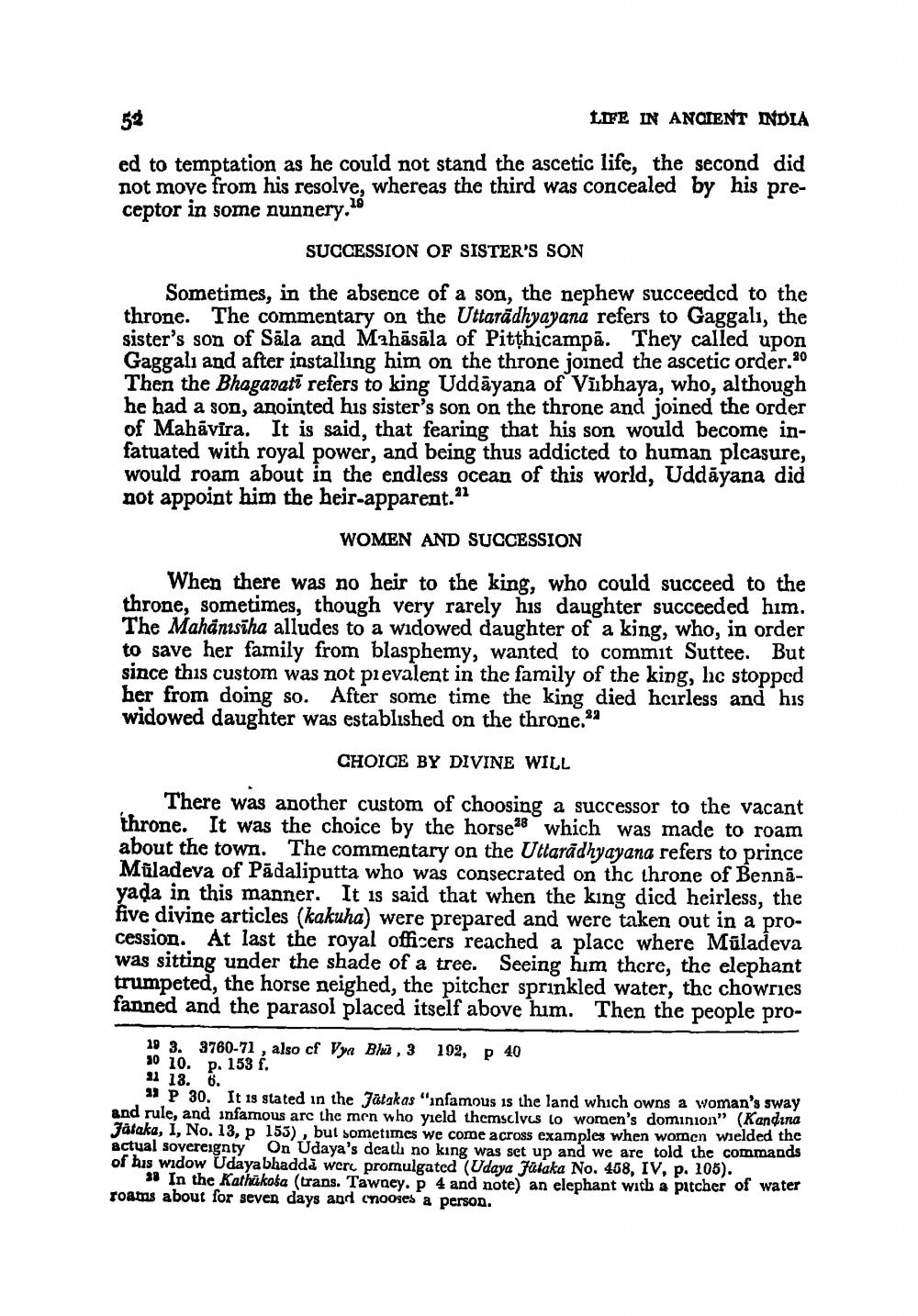________________
LIFE IN ANCIENT INDIA
ed to temptation as he could not stand the ascetic life, the second did not move from his resolve, whereas the third was concealed by his preceptor in some nunnery."
SUCCESSION OF SISTER'S SON
Sometimes, in the absence of a son, the nephew succeeded to the throne. The commentary on the Uttarādhyayana refers to Gaggali, the sister's son of Sala and Mahāsāla of Pitthicampā. They called upon Gaggali and after installing him on the throne joined the ascetic order.20 Then the Bhagavati refers to king Uddayana of Vibhaya, who, although he had a son, anointed his sister's son on the throne and joined the order of Mahavira. It is said, that fearing that his son would become infatuated with royal power, and being thus addicted to human plcasure, would roam about in the endless ocean of this world, Uddāyana did not appoint him the heir-apparent. 21
WOMEN AND SUCCESSION
When there was no heir to the king, who could succeed to the throne, sometimes, though very rarely his daughter succeeded him. The Mahānisīha alludes to a widowed daughter of a king, who, in order to save her family from blasphemy, wanted to commit Suttee. But since this custom was not prevalent in the family of the king, hc stopped her from doing so. After some time the king died hcirless and his widowed daughter was established on the throne.21
CHOICE BY DIVINE WILL
There was another custom of choosing a successor to the vacant throne. It was the choice by the horseas which was made to roam about the town. The commentary on the Uttarādhyayana refers to prince Müladeva of Padaliputta who was consecrated on thc throne of Bennayada in this manner. It is said that when the king dicd heirless, the five divine articles (kakuha) were prepared and were taken out in a procession. At last the royal officers reached a place where Müladeva was sitting under the shade of a tree. Seeing him there, the elephant trumpeted, the horse neighed, the pitcher sprinkled water, thc chowries fanned and the parasol placed itself above him. Then the people pro
10 3.3760-71, also cf Vya Bli, 3 192, p 40 30 10. P. 153 f. 21 13. 6.
11 P 30. It 18 stated in the Jatakas "infamous is the land which owns a woman's sway and rule, and infamous are the men who yield themsclvus to women's dominion" (Kandina Jataka, I, No. 13, p 155), but sometimes we come across examples when women wielded the actual sovereignty On Udaya's death no king was set up and we are told the commands of his widow Udayabhadda were promulgated (Udaya falaka No. 458, IV, p. 105).
38 In the Kathakota (trans. Tawacy. P 4 and note) an elephant with a pitcher of water roamns about for seven days and nooses a person.




